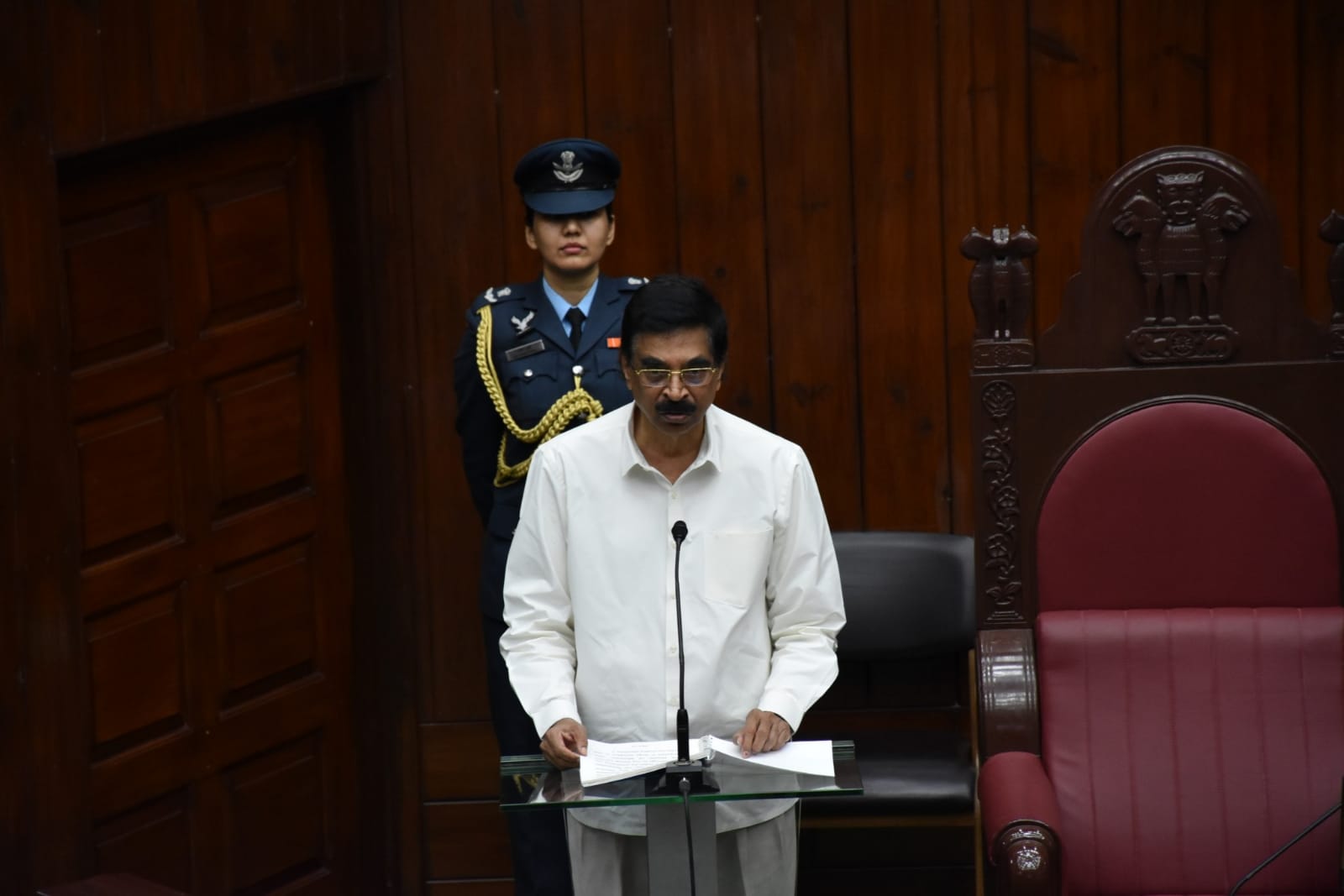Governor Dr Hari Babu Kambhampati addressed the First Session of the Ninth Mizoram Legislative Assembly today. In his address, the Governor highlighted the directions in which his Government, under the new ministry, would proceed to fulfil their policy of change, growth and development for the state of Mizoram.
The governor opened his address by congratulating the people of Mizoram, who participated in large numbers in the recently concluded General Election held on the 7th of November 2023. He opined that the high voting turnout percentage of 80.43 per cent is a testament to the deepening and keen interest shown by the people of Mizoram in the election.
He extended his greetings and warm felicitations to all the elected members of the Assembly; in particular, the 23 members, who were elected for the first time to this august House. The governor also stated the election of 3 women MLAs from different parts of the state is unprecedented in the legislative history of Mizoram. He hoped that this historic achievement by the women in Mizoram would certainly have a positive impact on the lives of women across the state.
On the success of yet another free and fair election, the Governor acknowledged the efforts and the contributions of the bureaucracy and law enforcing agencies, supplemented whole-heartedly by the endeavours and efforts of the civil society, NGOs and Churches in general, and the Mizoram People’s Forum (MPF) in particular.
He endorsed that the outcome of the election is indicative of the people’s yearning for a new system – ‘Kalphung Thar’, and that it reflected the firm conviction of our people in the democratic process of change.
In his address, Governor Dr Hari Babu Kambhampati introduced that there would be seven broad areas of thrust encompassing the six basic needs that will be accorded importance by his Government in the next five years.
– Responsible and responsive administration guided by the principles of good governance and accountability
– Ensuring steady and sustainable development in all sectors
– Providing support and impetus to the industry
– Access to social security and social equity
– Youth welfare and development
– Protection of the environment
– Long-term developmental projects which can have transformative outcomes

